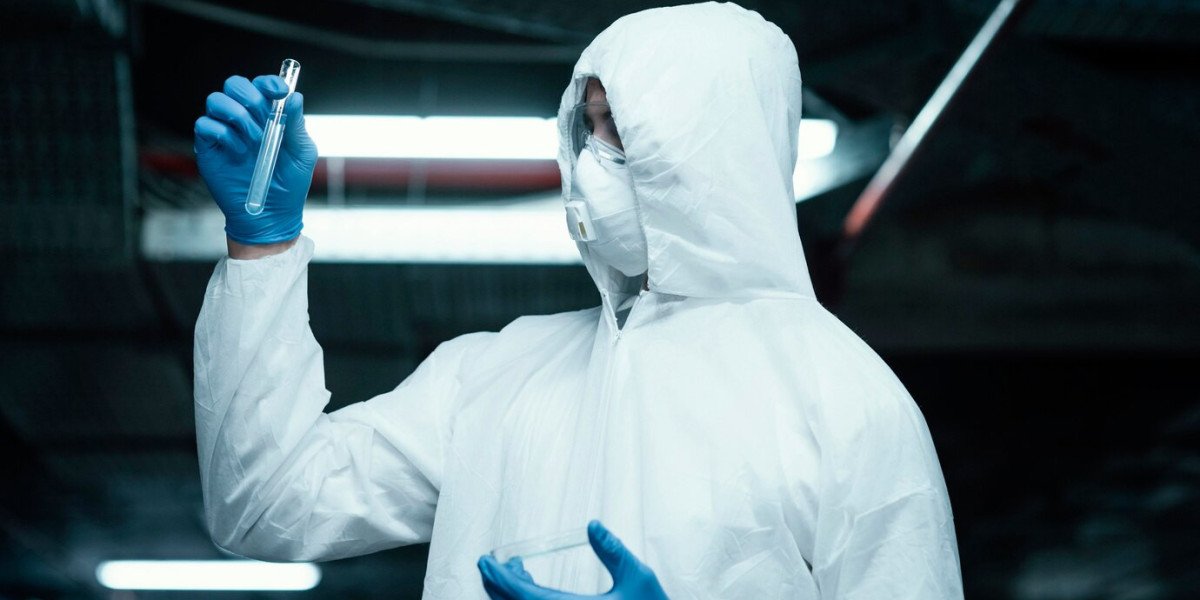Dealing with biohazardous situations such as crime scenes, trauma scenes, or infectious disease outbreaks can be overwhelming, both emotionally and financially. One common question that arises in such situations is whether biohazard cleaning services are covered by insurance. The complexities of insurance coverage for biohazard cleaning services, including what types of insurance policies may provide coverage, factors that influence coverage eligibility, and steps to take when seeking insurance reimbursement for biohazard cleanup.
Biohazard Cleanup Services:
Before diving into insurance coverage, it's essential to understand the nature of biohazard cleanup services:
What is Biohazard Cleanup?
Biohazard cleanup involves the safe and thorough removal of biological contaminants, such as blood, bodily fluids, pathogens, and hazardous materials, from a contaminated environment. Professional biohazard cleaning companies follow strict protocols and use specialized equipment and disinfectants to ensure thorough decontamination and restoration of the affected area.
Types of Biohazard Situations
Biohazard cleanup services may be required in various situations, including:
- Crime scenes
- Trauma scenes (suicides, homicides, accidents)
- Hoarding cleanup
- Infectious disease outbreaks (e.g., COVID-19)
- Industrial accidents involving biohazardous materials
Each of these situations presents unique challenges and requires specialized expertise to safely and effectively clean and sanitize the affected area.
Does Insurance Cover Biohazard Cleaning Services?
Insurance coverage for Biohazard Cleaning Services can vary depending on several factors:
1. Homeowner's Insurance Policies
Coverage Scope: Some homeowner's insurance policies may include coverage for biohazard cleanup under the "dwelling coverage" or "other structures coverage" sections. This coverage typically applies to incidents that occur on your property, such as trauma scenes or accidents.
Policy Limitations: Check your policy for specific details on coverage limits and exclusions related to biohazard cleanup. Some policies may have limits on the amount of coverage provided for specialized cleaning services.
Cause of Incident: Insurance coverage may depend on the cause of the biohazard incident. For example, coverage for a crime scene cleanup may differ from coverage for a natural disaster-related cleanup.
2. Business Insurance Policies
Commercial General Liability (CGL) Insurance: Businesses may have CGL insurance that provides coverage for liability claims arising from biohazard incidents on their premises. This coverage may extend to biohazard cleanup costs, depending on the policy terms and circumstances of the incident.
Workers' Compensation: If an employee is exposed to biohazards in the workplace, workers' compensation insurance may cover medical expenses and rehabilitation costs. In some cases, it may also cover the cost of biohazard cleanup required to restore a safe work environment.
3. Government Assistance and Regulations
Public Health Emergencies: During public health emergencies, such as infectious disease outbreaks, government agencies may provide financial assistance or resources for biohazard cleanup and disinfection efforts.
Regulatory Compliance: Compliance with local, state, and federal regulations regarding biohazard cleanup may influence insurance coverage eligibility. Insurance companies may require proof of compliance with safety and environmental standards.
Steps to Take When Seeking Insurance Coverage for Biohazard Cleanup:
If you need biohazard cleaning services and are considering insurance coverage, here are steps to help navigate the process:
1. Review Your Insurance Policy
Read your policy: Understand what types of incidents and services are covered under your homeowner's or business insurance policy.
Contact your insurance provider: Clarify coverage details with your insurance agent or provider. Ask specific questions about coverage for biohazard cleanup and any documentation or proof of loss required.
2. Document the Incident
Gather documentation: Collect evidence of the biohazard incident, such as police reports, medical reports, or incident reports. This documentation may be required to support your insurance claim.
Document cleanup expenses: Keep detailed records of expenses related to biohazard cleanup services, including invoices
, receipts, and any communication with the cleaning company.
3. File an Insurance Claim
Submit a claim: Initiate the insurance claims process as soon as possible after the biohazard incident occurs. Follow your insurance company's procedures for filing a claim and provide all necessary documentation to support your claim for biohazard cleanup services.
Cooperate with the insurer: Cooperate with the insurance company's investigation and provide any additional information or documentation they may request regarding the biohazard incident and cleanup services.
4. Seek Professional Assistance
Consult with a public adjuster: If you encounter difficulties in obtaining insurance coverage for biohazard cleanup, consider consulting with a public adjuster. Public adjusters can help negotiate with insurance companies on your behalf and maximize your claim settlement.
Legal assistance: In complex cases or disputes over insurance coverage, seek advice from a qualified attorney who specializes in insurance law. They can provide legal guidance and representation to protect your rights and interests.
Conclusion:
Biohazard cleanup services are critical for restoring safety and sanitation in environments contaminated by biological hazards. While insurance coverage for biohazard cleanup can vary depending on policy terms, the type of incident, and other factors, many homeowner's and business insurance policies provide coverage for these specialized cleaning services. It's essential to review your insurance policy, understand coverage limitations and exclusions, and follow proper procedures when filing a claim for Biohazard Cleanup services. By taking proactive steps and seeking professional assistance when needed, you can navigate the insurance claims process effectively and ensure that necessary biohazard cleanup services are covered.







